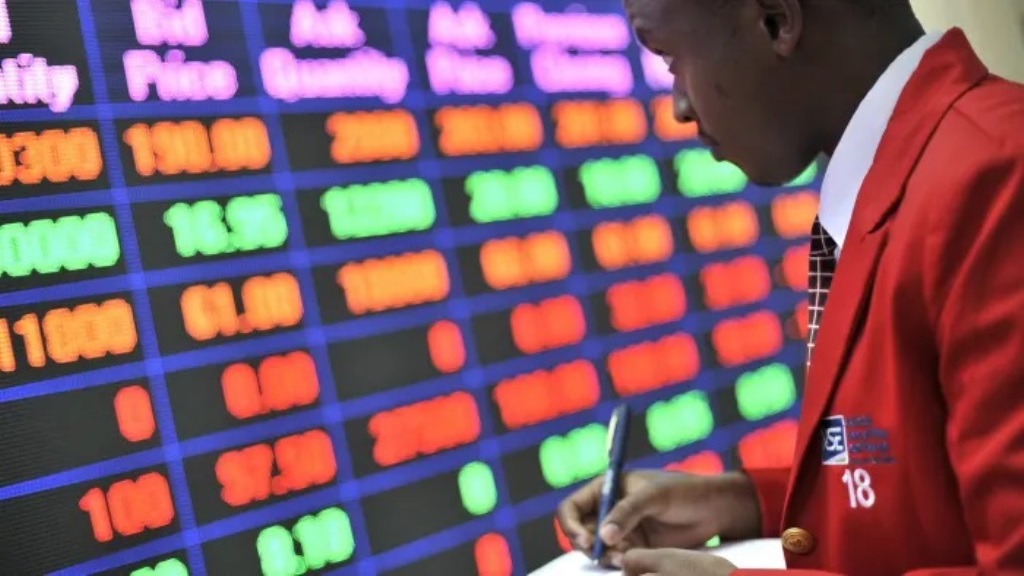AfricaPress-Tanzania: EFFECTS of the coronavirus pandemic are already being felt in the financial sector in East African Community (EAC) member countries due to measures taken to tame it, including lockdown in some of them.
The Nairobi Securities Exchange Ltd All Share Index (NSEASI) and Nairobi Stock Exchange (NSE) 20 share price, indices declined by 9.7 per cent and 7.5 per cent respectively.
Statistics released by the East African Business Council (EABC) on Thursday show that Tanzania’s main stock exchange dropped from 2,112.77 points in January to just under 1,747.70 points in the middle of last month.
The EABC Chief Executive Officer, Dr Peter Mathuki, said in the regional apex body of private sector associations and corporates’ report that in Uganda, all stock prices either dropped or remained unchanged except for the pharmaceutical firm Cipla which rose by two per cent.
“Rwanda has enjoyed a stable ASI ranging between 135.59 points in December to 150.19 points in March,” said the former East African Legislative Assembly (EALA) member.
Impact on the stock market was +9.73 per cent in Rwanda; -24.14 per cent in Kenya; -38.98 in Uganda and -17.28 in Tanzania.
The US dollar has rallied against East African currencies due to the global volatility of the foreign exchange conversion (FX Buffer) worsened by the advent of the novel coronavirus that could likely see the currencies shed further, pushing up import cost and inflation.
Dr Mathuki disclosed that the stock of external debt had increased as local currencies lose ground against the US dollar.
The situation is aggravated by the depletion of foreign exchange reserves due to reduced financial inflows from Foreign Direct Investments (FDIs), tourism receipts and export earnings.
“National banks are reviewing their Central Bank Rates (CBR) to cushion the economies against the economic shocks of the Covid-19 pandemic.
“For instance, Kenya and Uganda lowered their CBR to 7.25 per cent and eight per cent respectively, thus effectively reducing the cost of loans,” Dr Mathuki explained.
At 2:38 pm on Friday 13th March 2020, the NSE suspended trading on Friday afternoon as markets plummeted following the confirmation of Kenya’s first ever Covid-19 case.
The NSE main index hit a 17 year low in March as foreign investors turned into net sellers as they deepened withdrawals from the Equities Market.
Risk for the financial sector and sub-sectors are that bank credit to the private sector is expected to decelerate rapidly due to both supply and demand side factors.
On the demand side, there will be lower household demand for credit as many applied austerity measures and weak corporate sector balance sheets as well as cash flow problems facing many companies impacted on credit uptake.
On the supply side, banks will take precautionary measures and tightened their lending standards to minimise further exposures to risks associated with Covid-19 by increasing their holding of government securities considered to be much risk-free.
The banking sub-sector will likely face elevated credit risks, which will be caused by the deterioration of their asset quality due to increased Non-Performing Loans (NPLs) and provisions.
The insurance industry will record declining margins and falling performance metrics measured by Return on Assets (ROA) and Return on Equity (ROE).
That will be attributed to the challenging economic adverse effect of the deadly virus. On liquidity challenges, the doctor noted that the interbank market will have liquidity constraints.
In the corporate sector, viability (profitability) and liquidity problems will be reported in several companies, including those listed on the stock markets.
The stock market is expected to experience reduced liquidity due to the thin liquidity in the market, concentration risks and high volatility stock prices.
There will be no expectation of Initial Public Offerings (IPO) or new corporate bond issuances amid of Covid19.
The pension sub-sector will be negatively impacted on growth in assets due to exposure of its assets to excessive stock market volatility in the banking sector and off-shore investments as a result of Covid-19.
About 17.5 per cent of Kenya retirees’ money was invested in quoted securities at the NSE as at







